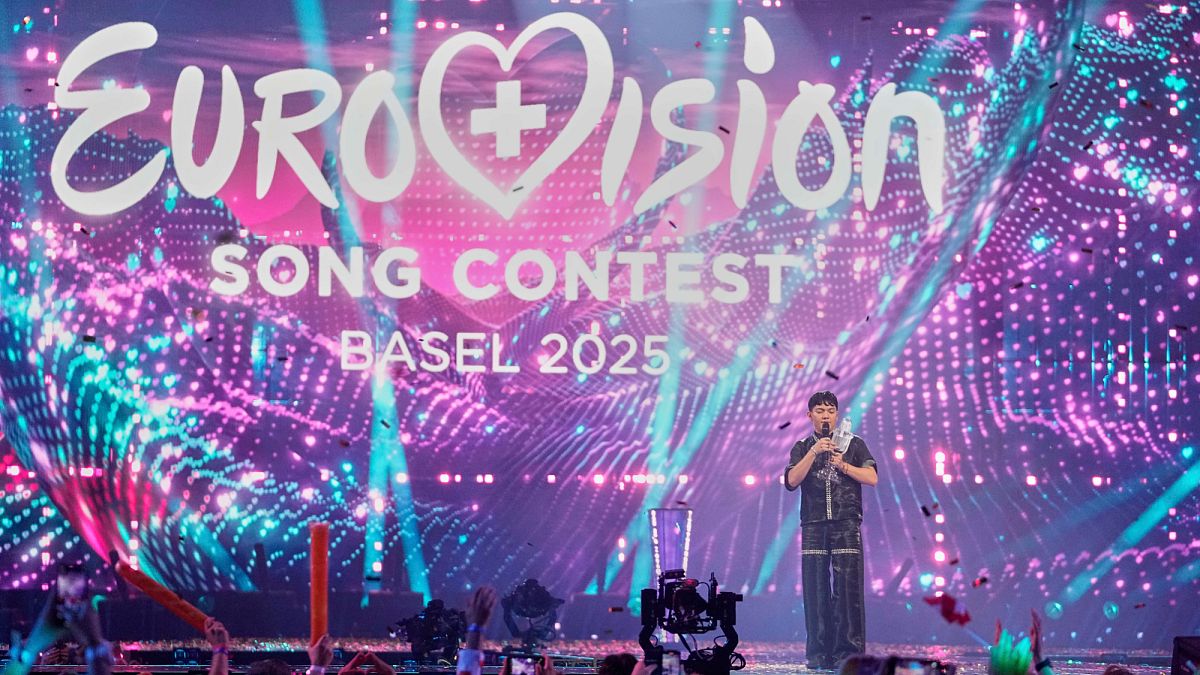Just over two weeks after the conclusion of the 2025 Eurovision Song Contest, controversy over the integrity of televoting continues to mount.
A group of 12 MEPs from socialist, leftist, green, and liberal groups has written to the top brass of the European Broadcasting Union (EBU), which organises the contest, expressing “renewed apprehension regarding increasing concerns of irregularities tied to the 2025 contest” in a letter seen by Euronews.
Their appeal follows a wave of concern from national broadcasters, including the Netherlands’ AVROTROS/NPO, Norway’s NRK, Spain’s RTVE, Slovenia’s RTVSLO, Iceland’s RÚV, Belgium’s Flemish VRT, and Finland’s Yle.
The broadcasters cited suspicions of televoting manipulation and questioned the role of state-backed promotion, particularly involving this year’s runner-up in the contest, Israel’s entry, which reportedly benefited from campaigns pursued by the Israeli Government Advertising Agency (Lapam).
Irish broadcaster RTÉ has formally requested access to the voting data, while VRT publicly questioned whether it will continue participating in the contest if full transparency is not ensured.
“While the Eurovision Song Contest is meant to unite Europe through music and culture, recent developments have cast a shadow over its credibility and neutrality,” Slovenian MEP Matjaž Nemec, who initiated the letter, told Euronews.
Nemec criticised the involvement of national governments in promoting their acts, calling it a breach of the EBU’s principles of fairness, impartiality, and independence.
The letter cites data from VRT revealing significant and unexplained discrepancies between viewer numbers and televoting participation during the 2023–2025 contests.
“These trends are not easily explained by organic fluctuations in viewer enthusiasm and warrant further scrutiny,” the letter reads, warning that the increasing number of broadcasters questioning their own data points to a deeper, systemic issue.
“This is not an isolated concern: it signals a broader problem that must be addressed,” Nemec said.
The MEPs have called on the EBU to take specific actions, including releasing complete voting data, authorising an independent audit, and enforcing safeguards to prevent political interference in the contest.
“Without answers and accountability, Eurovision risks losing the trust of its audience and becoming a stage not for unity, but for manipulation,” Nemec warned, adding that the European public deserves full transparency on this year’s voting process.
Eurovision Song Contest director Martin Green has issued an open letter addressing concerns about transparency and the integrity of the voting process.
Green acknowledged the issues raised by broadcasters and confirmed that they would be discussed at the upcoming EBU Reference Group meeting.
He noted that while promotional efforts by participating countries are permitted and common in the music industry, the EBU is reviewing whether such campaigns could unduly influence public voting.
He also pointed out that Eurovision’s voting system incorporates “multiple security layers” and is overseen by over 60 professionals across Cologne, Vienna, and Amsterdam, while the voting is managed by Once Germany GmbH and independently verified by EY (Ernst & Young).
Regarding the current rule limiting votes to 20 per payment method per person, Green stated that there is no evidence this affects the results. Nonetheless, the issue will be re-examined as part of the post-contest review process.
